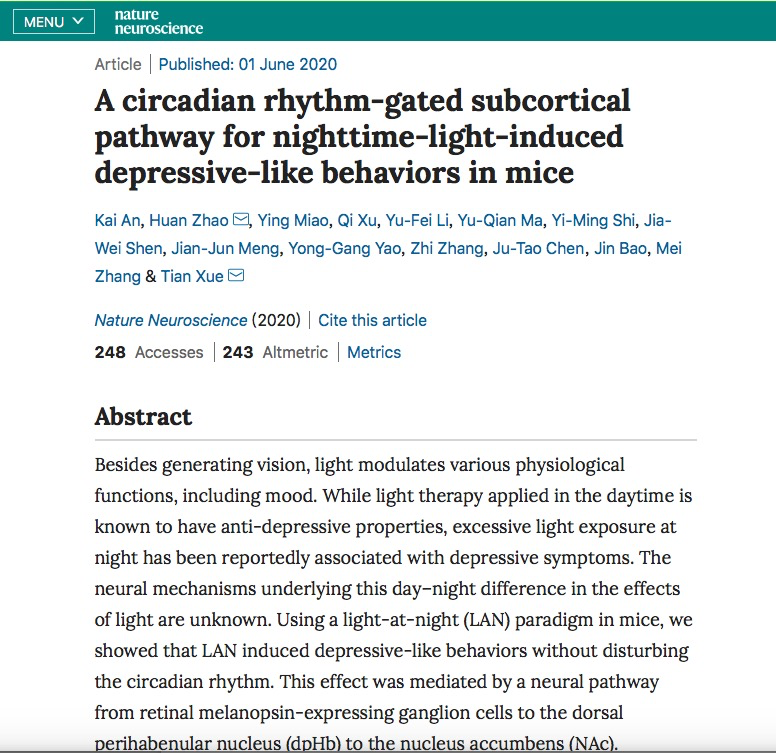Mice get depressed over light at night


Health experts have long suggested that exposure to light during nighttime may lead to depression in humans, but now Chinese scientists have verified that this happens to mice.
Scientists from the University of Science and Technology of China, based in Hefei, Anhui province, found that the effect was partly controlled by a neural pathway that carries signals from they eyes to a specific region of brain. Blocking the pathway could prevent the effect, the paper said.
In their experiments, the scientists exposed dozens of mice to blue light from 9 pm to 11 pm. Blue light was chosen because neurons are most sensitive to it, according to An Kai, the lead author of the paper, which was published in the science journal Nature Neuroscience.
"To our surprise, the effect was very obvious in mice," said An, a doctoral candidate at the university. "The exposure resulted that more than 70 percent of the subject mice exhibiting depressive symptoms, which was shown by two classical tests."
The mice exhibited decreased mobility in the forced swimming test and decreased preference in the sucrose (sugar) preference test.
An said researchers ultimately hope to verify the mechanism in humans, but further experiments are required.
Mice are more active at night than in the daytime, which is the reverse of humans.
"For the next stage of research, we will move on to other animals whose biological rhythms are closer to humans," An said.
Exposure to excessive light at nighttime, either from "sky-glow" or the use of electronic devices such as mobile phones or personal computers before bedtime, has been associated with a greater risk of depression, paper noted.
- Five trapped in coal mine flooding in Northeast China
- Long March 5 rocket deploys tech demo satellite into space
- China launches communication technology test satellite
- Spokesperson warns against aggression toward mainland fisherman
- Lhasa wetland reserve recognized as world's highest altitude wetland
- Chengdu woman sentenced for fatally stabbing neighbor




































